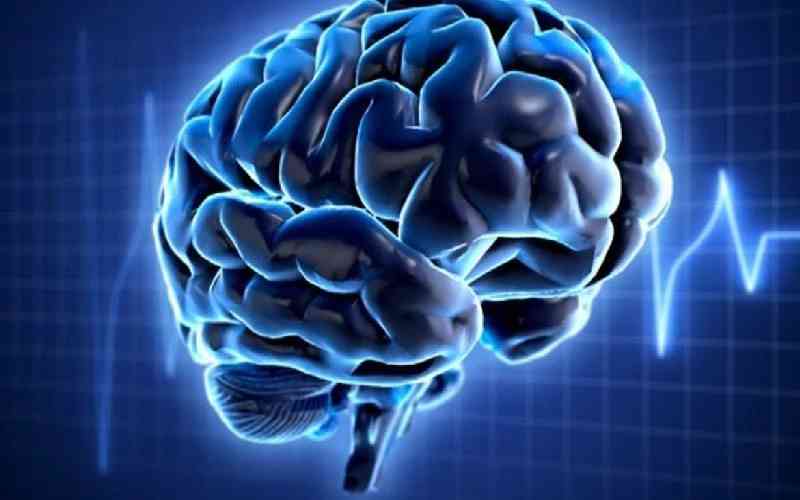
When a woman is expectant, her body changes starting with the hormones, respiratory system, cardiovascular, digestion urinary among others.
A new study has shown that just like the body, the brain also undergoes major changes with some happening suddenly, while others over time.
Researchers said they have mapped out the changes that unfold as a woman’s brain reorganises in response to pregnancy. The findings are based on the scans conducted at least 25 times starting from weeks before conception throughout the nine months pregnancy journey and the two years postpartum.
The study documents a widespread decrease in the volume of cortical gray matter, which is the area that comprises the brain’s outermost layer, as the microstructural integrity of the white matter which is located deeper in the brain increases. The changes, the study finds, are triggered by the rising levels of hormones, namely estradiol and progesterone, which are responsible for pregnancy.
The gray matter is comprised of the cell bodies of the brain nerve cells whereas the white matter is made up of the bundles of axons, the thin fibres responsible for facilitating communication between brain regions.
The study was based on a single subject in the University of California Irvine, cognitive neuroscientist and co-author Elizabeth Chrastil, a first-time mother who gave birth to a baby boy who is now four and half years old.
Scientists emphasised that they have observed the same pattern in other expectant women who participated in the ongoing research dubbed the Maternal Brain project that involves brain scans for pregnant women.
“It is pretty shocking that in 2024, we have hardly any information about what happens in the brain during pregnancy. This research paper opens up more questions than it answers, and we are just scratching the surface of these questions,” Chrastil said.
Chrastil said that the scans that they conducted showed a four per cent average reduction in gray matter, roughly 80 per cent of the brain region studied.
Scans also showed an increase of about 10 per cent in white matter microstructural integrity, a measure of the health and quality of the connections between brain regions, peaking late in the second trimester and early in the third trimester, then returning to pre-pregnancy status postpartum.
“The maternal brain undergoes a choreographed change across gestation, and we are finally able to observe the process in real-time,” said the University of California, Santa Barbara neuroscientist Emily Jacobs, senior author of the study published in the journal Nature Neuroscience, opens new tab.
“Previous studies had taken snapshots of the brain before and after pregnancy. But we have never witnessed the brain amid this metamorphosis,” Jacobs added.
However, the scientists said that they have not concluded whether the loss of the gray matter during the period is something good or bad in the expectant mother's body.
“This change could indicate a fine-tuning of brain circuits, not unlike what happens to all young adults as they transition through puberty and their brain becomes more specialised,” University of Pennsylvania postdoctoral scholar and study lead author Laura Pritschet said. “Some changes, we observed could also be a response to the high physiological demands of pregnancy itself, showcasing just how adaptive the brain can be.”
The researchers hope in the future to examine how variation in these changes could help predict phenomena such as postpartum depression and how preeclampsia, a serious blood pressure condition that may develop during pregnancy, could affect the brain.
 The Standard Group Plc is a multi-media organization with investments in media
platforms spanning newspaper print operations, television, radio broadcasting,
digital and online services. The Standard Group is recognized as a leading
multi-media house in Kenya with a key influence in matters of national and
international interest.
The Standard Group Plc is a multi-media organization with investments in media
platforms spanning newspaper print operations, television, radio broadcasting,
digital and online services. The Standard Group is recognized as a leading
multi-media house in Kenya with a key influence in matters of national and
international interest.
 The Standard Group Plc is a multi-media organization with investments in media
platforms spanning newspaper print operations, television, radio broadcasting,
digital and online services. The Standard Group is recognized as a leading
multi-media house in Kenya with a key influence in matters of national and
international interest.
The Standard Group Plc is a multi-media organization with investments in media
platforms spanning newspaper print operations, television, radio broadcasting,
digital and online services. The Standard Group is recognized as a leading
multi-media house in Kenya with a key influence in matters of national and
international interest.











